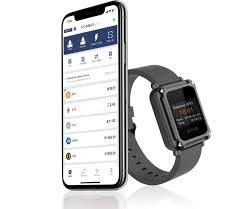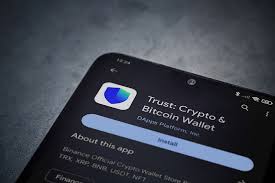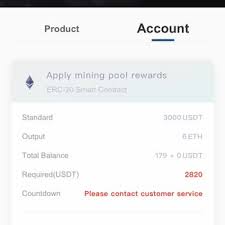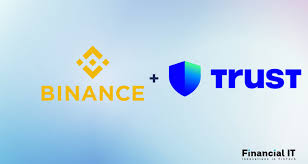
Trust Wallet is free to download and use, but transaction and network fees may apply depending on the blockchain.
Trust Wallet App Cost
Is Trust Wallet Free to Download?
Yes, Trust Wallet is completely free to download and use. It can be downloaded from the Google Play Store for Android devices and the Apple App Store for iOS devices without any charge.
-
No Download Fees: Trust Wallet can be installed without paying any fees.
-
No Subscription Fees: There are no monthly or annual subscription charges to use the app.
Are There Any Fees for Using Trust Wallet?
While Trust Wallet is free to use, certain activities within the app may incur fees, mainly related to transactions and network operations.
-
Transaction Fees: Trust Wallet does not charge fees for sending or receiving cryptocurrencies, but network fees (gas fees) apply, which are set by the blockchain network.
-
Third-Party Service Fees: If you use third-party services for staking, swapping, or trading, these platforms may charge additional fees.
-
No Custodial Fees: Trust Wallet does not charge any custodial fees, as it is a non-custodial wallet, meaning you retain control of your private keys.

Fees for Transactions on Trust Wallet
Does Trust Wallet Charge Transaction Fees?
Trust Wallet does not charge any fees for sending or receiving cryptocurrencies. The only fees involved are network fees, which are determined by the blockchain network.
-
No Trust Wallet Fees: Trust Wallet does not impose any transaction or withdrawal fees.
-
Only Network Fees: The wallet facilitates the transaction, but the fees depend on the blockchain and the method of transaction.
What Are the Network Fees for Transactions?
Network fees are the fees required to process transactions on a blockchain. These fees vary depending on the cryptocurrency and network congestion.
-
Ethereum (ETH) Gas Fees: Ethereum transactions often have high gas fees, especially during periods of network congestion.
-
Binance Smart Chain (BSC) Fees: Transactions on BSC are typically lower in fees compared to Ethereum.
-
Other Cryptos: Each blockchain (like Bitcoin, Litecoin, etc.) has its own network fees that fluctuate based on demand and supply of block space.

Staking and Yield Farming Fees
Are There Any Fees for Staking on Trust Wallet?
Trust Wallet itself does not charge any fees for staking, but the staking platform or the blockchain network might impose fees.
-
Platform Fees: Some staking platforms may charge a small fee on the rewards earned.
-
Network Fees: Staking transactions, such as delegating or claiming rewards, may involve network fees depending on the cryptocurrency being staked (e.g., Cosmos, Tezos).
-
No Custodial Fees: Trust Wallet does not charge any custodial or account management fees for staking.
How Do Fees Impact Yield Farming on Trust Wallet?
Fees can significantly affect the profitability of yield farming. Here’s how:
-
Liquidity Pool Fees: Providing liquidity on decentralized exchanges (DEXs) can incur transaction fees when entering or exiting pools.
-
Platform Fees: Some platforms or dApps may charge fees for yield farming activities, such as trading, staking, or withdrawing liquidity.
-
Impermanent Loss: While not a fee, impermanent loss (the risk of losing value due to changing token prices) is an important factor to consider in yield farming.
Trust Wallet’s Integration with Third-Party Services
Are There Fees When Using Third-Party Services with Trust Wallet?
Yes, when using third-party services integrated with Trust Wallet, such as decentralized exchanges (DEXs), staking platforms, or crypto-to-fiat services, there may be additional fees involved.
-
Swap and Trade Fees: When swapping or trading tokens via integrated DEXs like PancakeSwap or Uniswap, trading fees and liquidity pool fees may apply.
-
Staking Fees: Some third-party staking platforms may charge a fee on the rewards you earn.
-
Fiat Conversion Fees: If you use third-party services to convert crypto to fiat or purchase crypto with fiat, transaction fees or service charges may apply.
How Do Fees Differ Across Different Platforms?
Fees vary based on the platform you use, and can depend on the type of service provided:
-
DEXs: Decentralized exchanges typically charge trading fees, which are often lower than centralized exchanges but may vary by platform. PancakeSwap and Uniswap, for example, charge liquidity provider fees in addition to network fees.
-
Staking Platforms: Different platforms have varying fees for staking services. Some charge a percentage of the rewards, while others may only charge network fees for staking transactions.
-
Crypto-to-Fiat Services: Fees for converting crypto to fiat, such as those on exchanges like Binance or Coinbase, can range from 1-5% depending on the payment method and withdrawal method.

Exchange Fees on Trust Wallet
Are There Fees for Trading on Trust Wallet’s Built-In Exchange?
Yes, while Trust Wallet does not charge fees for using its built-in exchange, decentralized exchanges (DEXs) that Trust Wallet connects to often charge trading fees.
-
Trading Fees: DEXs like PancakeSwap and Uniswap typically charge a small trading fee (usually around 0.25% to 0.30%) for each transaction.
-
Network Fees: In addition to trading fees, network fees (gas fees) may apply, which vary based on the blockchain used (Ethereum, Binance Smart Chain, etc.).
How Do Fees Compare to Centralized Exchanges?
The fees on Trust Wallet’s DEXs are generally lower than those of centralized exchanges, but they come with their own set of costs.
-
Lower Trading Fees: DEXs often have lower trading fees than centralized exchanges, which can charge 0.1%-0.5% per trade.
-
No Account Fees: Trust Wallet’s DEXs do not charge account maintenance or deposit fees, unlike some centralized exchanges.
-
Network Fees: Centralized exchanges may have more competitive withdrawal fees compared to the higher gas fees on networks like Ethereum. However, DEXs provide more privacy and control over your assets.

Security Features and Costs
Are There Any Costs for Trust Wallet’s Security Features?
Trust Wallet provides robust security features at no additional cost. All security features are included as part of the app’s free usage.
-
Private Key Encryption: Trust Wallet uses encryption to secure your private keys, with no charge for this protection.
-
Biometric Authentication: You can enable fingerprint or facial recognition for free to enhance security.
-
PIN Protection: Set a PIN for secure access without any fees.
Does Trust Wallet Charge for Backup or Recovery Services?
No, Trust Wallet does not charge for backup or recovery services. The 12-word recovery phrase provided during wallet creation is free and essential for restoring access to your wallet.
-
Free Backup: Trust Wallet allows you to back up your wallet using the recovery phrase at no cost.
-
Recovery Process: If you lose access to your device, the recovery process is free, requiring only the 12-word phrase you saved during setup.

Hidden Costs in Trust Wallet Usage
Are There Any Hidden Fees While Using Trust Wallet?
Trust Wallet does not have hidden fees for general use, but certain actions may incur fees that are clearly outlined.
-
Network Fees: The primary fees are blockchain network fees (gas fees), which are charged by the network, not Trust Wallet.
-
Third-Party Service Fees: If you use third-party services like exchanges or DeFi platforms through Trust Wallet, they may have fees.
-
Staking and Liquidity Fees: Some staking platforms or liquidity pools may charge fees, which are not controlled by Trust Wallet.
How to Avoid Unexpected Costs on Trust Wallet?
To avoid unexpected costs:
-
Check Network Fees: Always review the network fees before making transactions, especially on networks like Ethereum, where gas fees can be high.
-
Read Terms on Third-Party Services: Be aware of the fees on third-party platforms for trading, staking, or liquidity provision.
-
Set Transaction Fees Manually: Trust Wallet allows you to adjust gas fees, so be mindful of the fees you set for faster or slower transactions.
-
Stay Informed: Keep track of changes in fee structures on any platforms you use with Trust Wallet to ensure there are no surprises.
Are there any fees for using Trust Wallet?
Trust Wallet is free to use, but transaction fees, known as network fees, apply when sending or receiving cryptocurrencies.
Does Trust Wallet charge for trading?
Trust Wallet does not charge trading fees, but decentralized exchanges (DEXs) it connects to may charge small fees for swaps.
Are there fees for staking on Trust Wallet?
While Trust Wallet itself doesn’t charge for staking, third-party platforms may charge a fee for staking rewards.
Leave a Reply